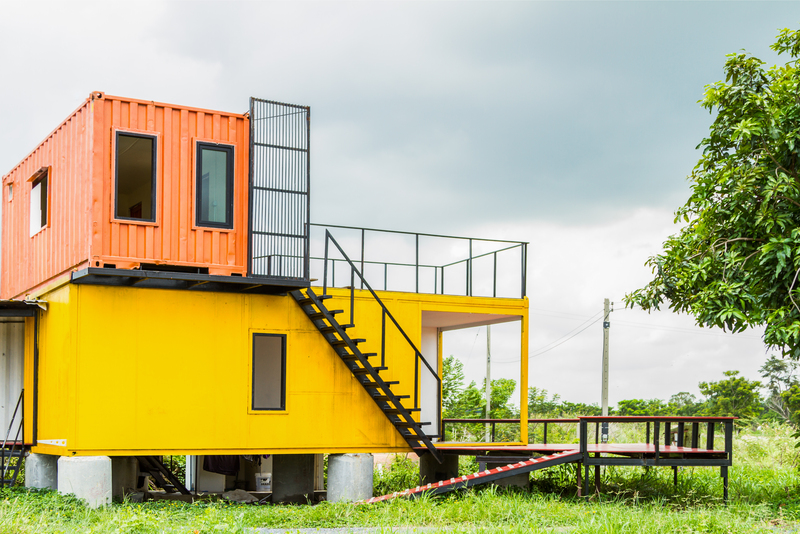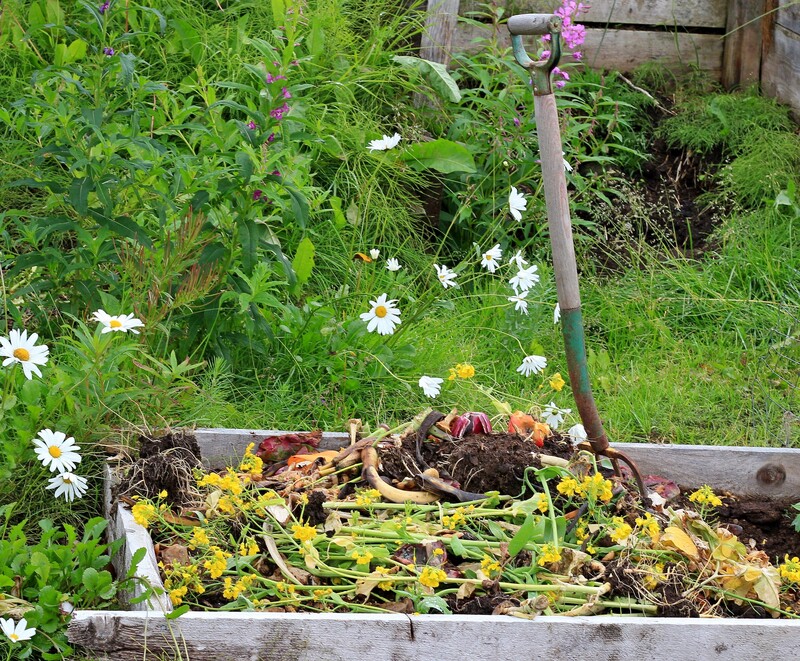Introduction to Sustainable Disposal of Pots and Pans
Pots and pans are fundamental tools in every kitchen, but eventually, they reach the end of their useful life. Whether due to wear, damage, or simple upgrade, the question arises--how can you dispose of pots and pans in an eco-friendly way? As concern for the environment grows, making sustainable choices for disposing of old cookware becomes increasingly important.
In this comprehensive article, we'll explore sustainable strategies for disposing of pots and pans, emphasizing methods such as recycling, upcycling, donation, and proper waste management. We'll also touch on innovative ideas for repurposing and eco-conscious brands that support sustainability. Let's dive into the best ways to minimize waste and ensure your old cookware doesn't end up contributing to landfill build-up.

Why Sustainable Disposal of Cookware Matters
Modern cookware often contains materials like aluminum, stainless steel, copper, cast iron, or non-stick coatings. If not disposed of carefully, these materials can leach toxins into the environment and unnecessarily fill landfills. Sustainable pots and pans disposal helps conserve resources, reduce pollution, minimize your carbon footprint, and even benefit local communities through donation and reuse.
The Environmental Impact of Pots and Pans Waste
- Landfill Overload: Large metal items in landfills take decades, if not centuries, to decompose and contribute to pollution.
- Resource Wastage: Recycling unused cookware saves energy and resources that would otherwise be used to create new products from raw materials.
- Chemical Hazards: Non-stick coatings can break down, releasing toxins if not handled properly.
- Lost Opportunities: Many pots and pans still have life in them and can serve someone else.
Identifying Cookware Materials for Responsible Disposal
Understanding what your pots and pans are made of will guide your disposal options. Common cookware materials include:
- Stainless Steel: Highly recyclable. Most recycling centers accept it.
- Aluminum: Also widely accepted for recycling.
- Cast Iron: Extremely durable and recyclable, often repurposed for other uses.
- Copper: Valuable and easily recycled - some centers pay for it by weight.
- Non-stick (Teflon or Ceramic Coated): Tricky to recycle due to coatings; needs special handling.
How to Check What Your Pots and Pans Are Made Of
- Look for labeling or manufacturer marks on the base of the cookware
- Consult user guides or the brand's official website
- If unsure, contact local recycling centers for advice
Eco-Friendly Pots and Pans Disposal Methods
Let's break down the most eco-conscious cookware disposal strategies available to consumers.
1. Recycle Pots and Pans Responsibly
Recycling is one of the most effective sustainable strategies for pots and pans disposal. Most metal cookware is recyclable but must be taken to the right facility.
- Scrap Metal Centers: Call ahead to confirm they accept the type and condition of cookware you want to recycle.
- Municipal Recycling Programs: Some local centers have drop-off points for metal goods--check your city's website.
- Specialty Recyclers: For Teflon or non-stick pans, research if your area has a recycler specializing in non-stick surface separation and disposal.
- Remove Non-Metal Parts: Handles, rubber grips, and glass lids should be separated and sorted accordingly.
Note: If your pots and pans are rusty or have chemical coatings coming off, notify the recycling center for special handling.
2. Donate Gently Used Pots and Pans
Donating cookware is a wonderful way to support people and families in need while promoting sustainable reuse.
- Charities and Thrift Stores: Organizations like Goodwill, Salvation Army, and Habitat for Humanity ReStore accept gently used pots and pans.
- Local Shelters and Food Banks: Kitchens in shelters or community programs may need additional cookware.
- College Students: Reach out on community boards or social media; students moving into their first apartments often need kitchen essentials.
Always clean and inspect items before donating. Only give cookware that is safe and functional.
3. Upcycle Pots and Pans Creatively
Upcycling turns your old cookware into functional or decorative pieces, reducing waste and adding personality to your home or garden.
- Planters: Use old pots as quirky garden planters or flower pots.
- Wall Art: Non-stick pans make unique wall clocks or chalkboards with a coat of paint.
- Organizers: Frying pans and saucepans can organize tools, kitchen gadgets, or art supplies in the garage or studio.
- Bird Feeders: Hang a pan from a tree to create a sturdy bird feeder.
Unleash your creativity--upcycling is both fun and environmentally friendly!
4. Proper Waste Management for Non-Recyclables
If recycling or repurposing aren't options, responsible waste management is crucial for eco-friendly disposal of pots and pans.
- Check with your municipality for hazardous item disposal days, especially for Teflon or chemically coated pans.
- Wrap sharp or broken items securely before discarding to protect sanitation workers.
- Avoid dumping large cookware in general waste whenever possible--seek bulk waste disposal options.
Supporting Sustainable Brands and Cookware Initiatives
Another forward-thinking approach to sustainable cookware disposal is supporting brands that prioritize environmental responsibility.
Buy from Eco-Conscious Cookware Brands
Many companies are now offering programs to recycle old pots and pans or manufacture products from recycled materials. Examples include:
- GreenPan: Cookware made from upcycled materials; participates in recycling programs.
- Made In: Offers buyback and recycling for used cookware.
- The Cookware Company: Focuses on non-toxic coatings and sustainable manufacturing.
When purchasing new cookware, look for those companies that offer take-back programs or rewards for eco-friendly disposal of your old items.
Cookware Return and Recycling Initiatives
- Many big-box retailers and hardware stores accept old cookware for recycling, sometimes offering discounts on new purchases.
- Some non-profit organizations organize community collection events for scrap metal recycling, often raising funds for local causes.
Before disposing of your pots and pans, research local or brand-sponsored initiatives to maximize your eco-impact.

Frequently Asked Questions About Sustainable Pots and Pans Disposal
Can non-stick pans be recycled?
Non-stick pans are tricky, as their coatings are not suitable for typical metal recycling. However, the underlying aluminum or steel can sometimes be recovered by specialty recyclers. Always check first--never add coated pans to curbside pickup without confirming.
What can I do with heavily damaged, warped, or broken pans?
If a pan is broken, warped, or otherwise unusable, prioritize recycling the metal and upcycling what you can. Otherwise, use community recycling events or correct waste disposal methods for hazardous components.
Are there any creative ideas for repurposing old cookware?
- Turn woks into large outdoor planters for vegetables or flowers
- Use small pans as pet food bowls
- Mount lids creatively for wall art
- Fashion colanders into fun lampshades
How can I tell when it's time to dispose of a pot or pan?
- Excessive scratching, flaking non-stick coating, or visible corrosion
- Broken handles or warped bottoms that compromise safety
- Loss of coating or structural integrity
Proper maintenance can extend cookware life, but eventually, safe and responsible disposal is necessary.
Summary: Making Pots and Pans Disposal Sustainable
Sustainable strategies for disposing of pots and pans can make a significant difference for the environment and your local community. Whether through recycling, donation, creative upcycling, or supporting cookware brands with take-back programs, your choices have long-lasting impact.
- Always identify your cookware material to unlock the best disposal route.
- Seek recycling or upcycling options before considering waste disposal.
- Donate whenever possible to promote a circular kitchen economy.
- Support eco-conscious brands working toward sustainable cookware solutions.
By following these comprehensive eco-friendly pots and pans disposal methods, you help reduce waste, conserve precious resources, and inspire positive change in your community. Let your old cookware serve a new purpose--sustainably!
